Sustainable Living is striving to make sustainable choices the new norm in the Nordic Region. Through our cross-sectoral programme consisting of six projects, we aim to simplify living in a climate-friendly way, provide concrete guidelines and tools, and inspire behavioral and cultural changes. Join us in creating a more integrated and sustainable Nordic region by 2030. Read more about the programme here.
News from the project
Webinar: Where are the boys in climate action? 28 August 13.00-14.30 (CEST)
Young people are vital agents for a just green transition, but participation varies across social identities and backgrounds. Men and boys tend to be less interested in both sustainability and gender equality compared to women and girls. How can we strengthen the conscious and committed, while also bringing underrepresented voices to the table?
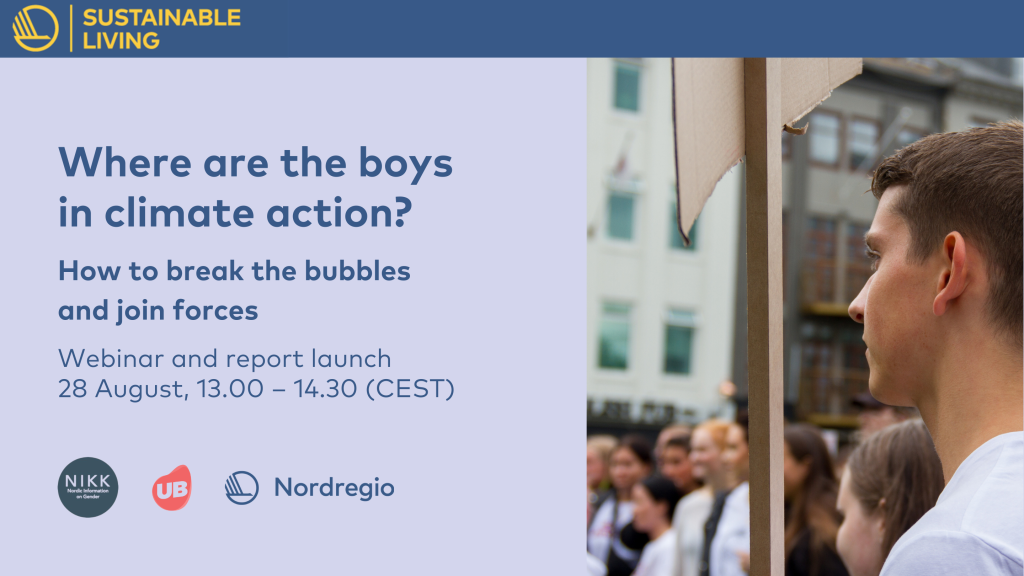
On 28 August, NIKK will launch a new report offering fresh insights on how to approach inclusivity, based on interviews with Nordic youth organisations. Ungdomsbarometern (SE) joins the studio to present interesting data and trends among girls and boys in terms of social and climate engagement.
We will also have a panel discussion and interactive chat discussing questions like:
- What challenges and solutions do the organisations and young people see?
- What keeps young men and other underrepresented groups from getting involved – and what attracts them?
- Is there a trade-off between focusing on existing advocates and activating the less engaged? How can we balance this?
Join the discussion and sign up for the webinar here.
Young people in the Nordic countries demand changes for sustainability!
On November 1-3, 2023, a youth conference took place as part of the Education for Sustainability project, led by Rannís on behalf of the Nordic Council of Ministers, in collaboration with Samfés. Over 70 young people from all Nordic countries and autonomous regions of the Nordic countries attended the conference.
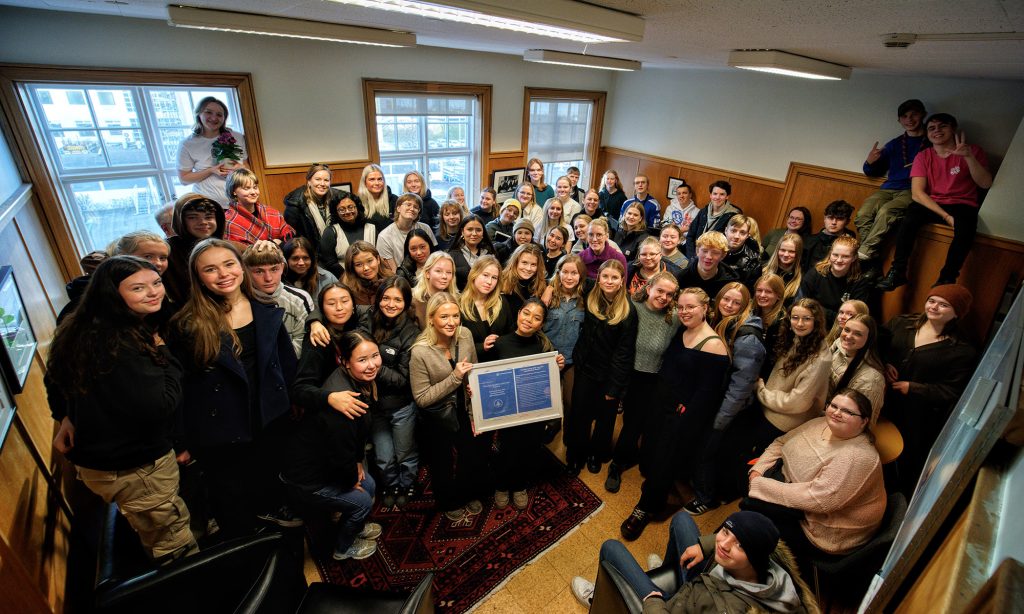
The topic of the conference was to hear the voices of young people and get their opinions on how schools address sustainability and how sustainability can be integrated with the existing curriculum.
The young people who attended the conference worked together in workshops and came to a conclusion about the steps they believe are essential for a sustainable future. They emphasized that, first and foremost, information and skills are required in order to address the challenges that society faces. They wanted to do this by creating a special subject that deals with sustainability alone but also emphasised that the skills and abilities of teachers in the field need to be strengthened. Their third suggestion was to give students and young people further opportunities to have an impact on their own future and express their views.
The results were presented to the Minister of Education and Children, Ásmundur Einar Daðason, at a formal event. In the picture, the minister receives the group’s results.
The visiting youth also had the chance to connect and explore Iceland through a variety of formal and informal programs, with a focus on experiencing Icelandic culture and nature.
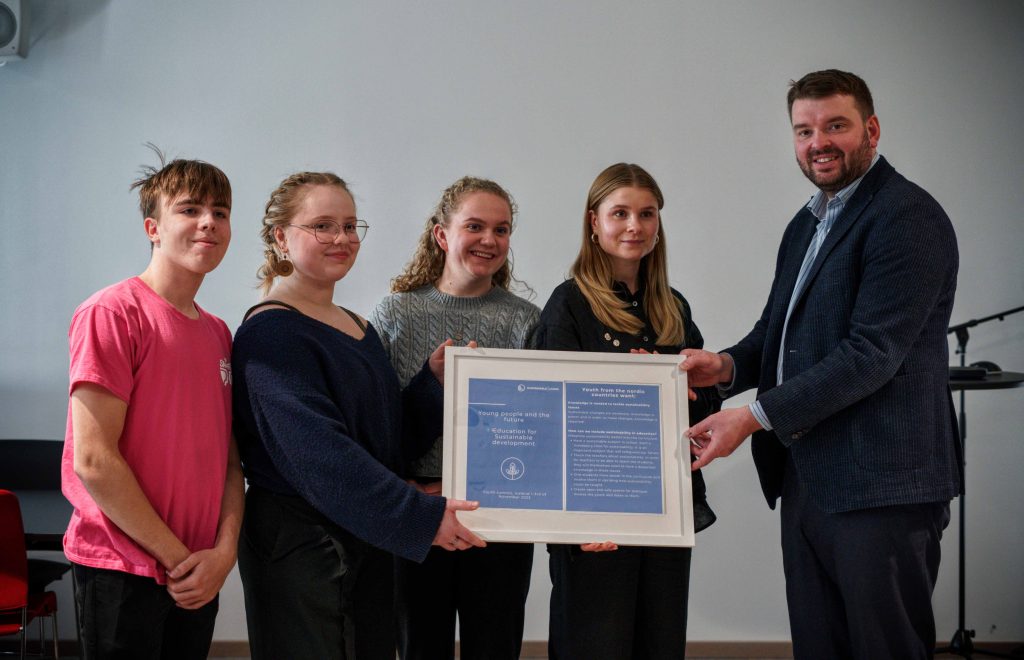
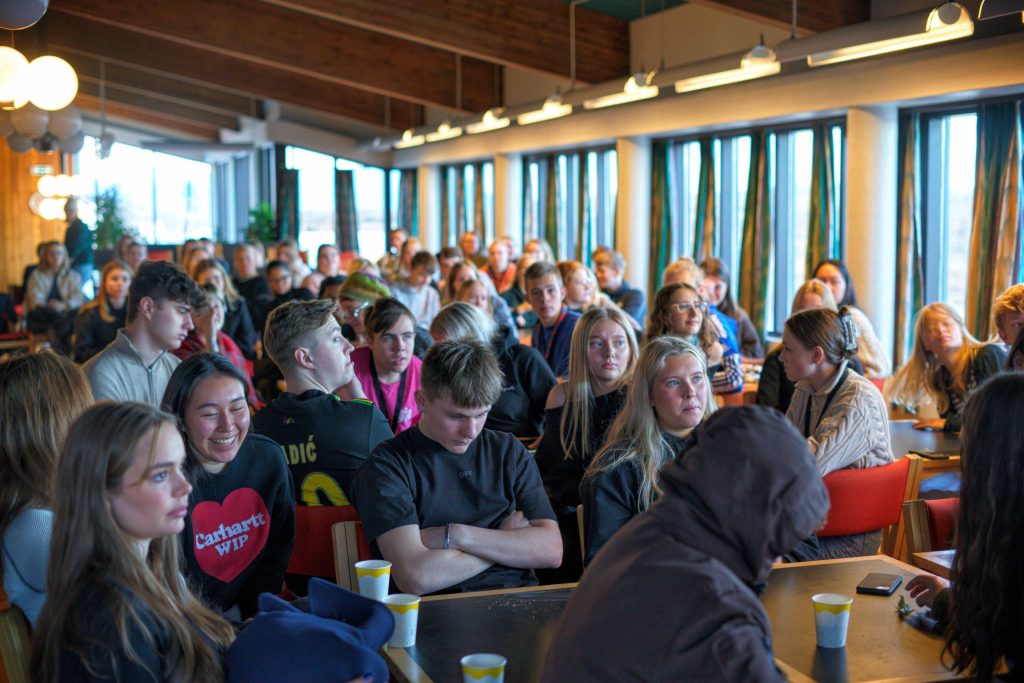
Iceland holds the presidency of the Nordic Council of Ministers, and this event was part of Iceland’s presidency plan.
The results of the group: Young people and the future Education for Sustainable development
The project Education for sustainability has established a cooperation network in and between the Nordic countries that works to integrate sustainability into the teaching of all school levels. Education for sustainability is one of six projects designed to implement the vision of the Nordic countries becoming the most sustainable and integrated region on earth by 2030.
Here you can read more about the six projects under Sustainable Living.
For more information on the conference and the results please get in touch with the Project Manager, Margrét K. Sverrisdóttir.
Escaping Fast Fashion – How you can act for change
Did you know that people in the Nordics buy more clothes than the rest of the world and our consumption has gone up during the last 20 years? It’s time to check our shopping habits and spin towards more sustainable choices. Join us for an evening where we find a new direction through an interactive mending workshop and keynotes to deepen our understanding of fast fashion’s destructive impacts on our planet and its people!
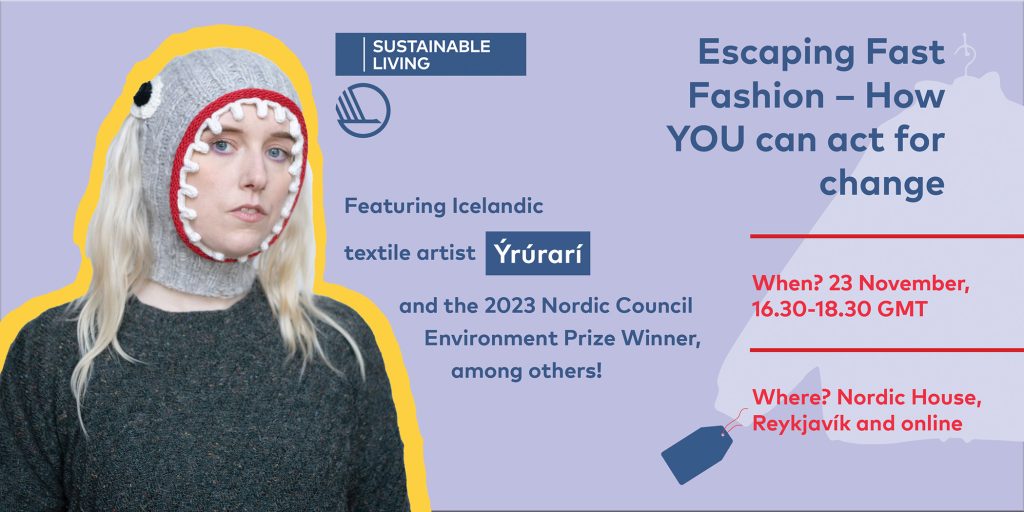
Join us the night before Black Friday, on November 23rd in Reykjavik or online to explore sustainable fashion alternatives. Under the guidance of Icelandic textile artist Ýrúrarí and with inspiration from the Nordic Council Environment Prize Winner 2023, we’ll breathe new life into our old clothes and uncover ways to break up with fast fashion.
Norden Launches New Green Roadmap for Cultural Institutions
The Sustainable Living project Sustainable cultural experiences has rolled out a new green roadmap, aiming to set cultural institutions across the Nordic region on a path toward efficient resource use and achieving the necessary CO2 reductions by 2030. This tool is set to accelerate green development within these institutions, offering clear guidelines for action-based sustainability work at both operational and managerial levels.
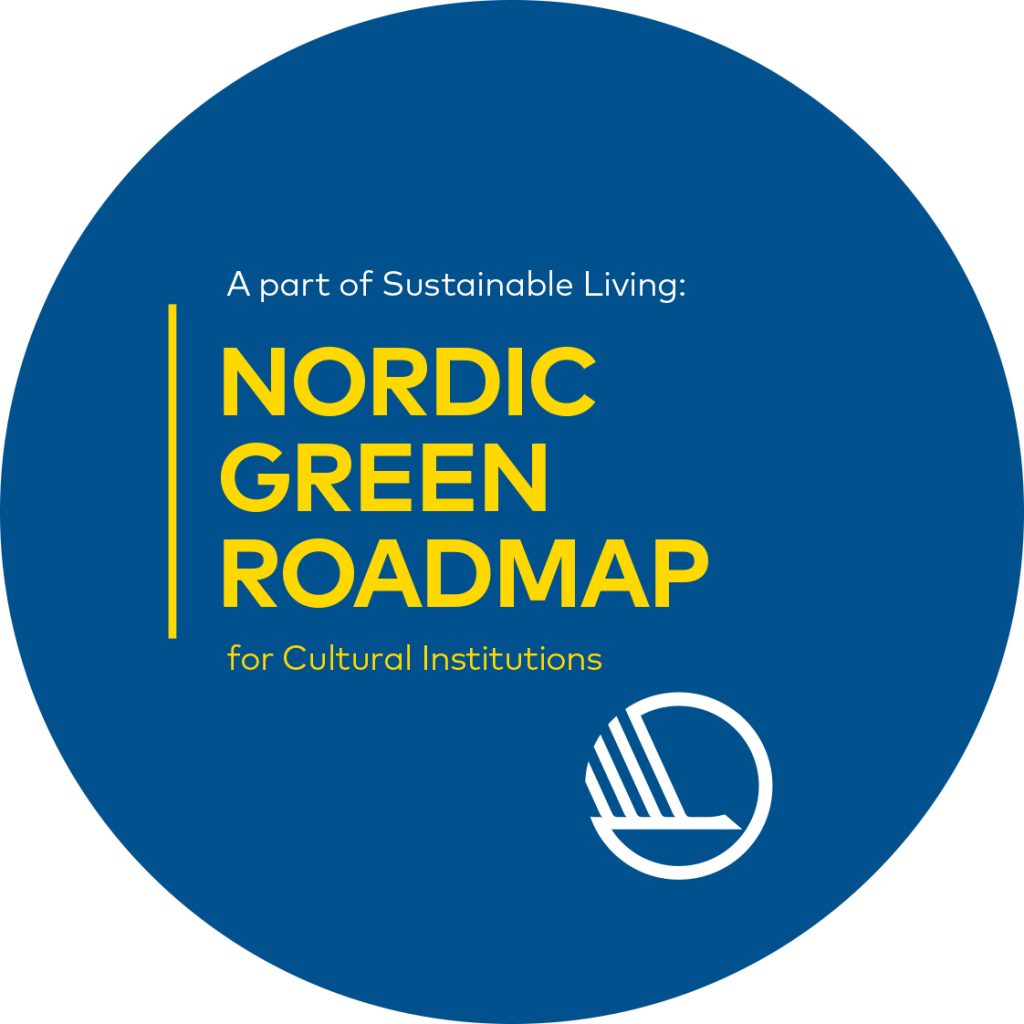
With the goal of creating more sustainable cultural experiences and meeting the EU’s Green Deal and the Paris Agreement targets by 2030 and 2050, every organization is encouraged to participate in this green shift. Cultural institutions, being cornerstones in their communities and countries, will play a crucial role in implementing and promoting sustainability measures.
The roadmap is designed to support cultural institutions through practical and strategic measures, aiming to not only reduce emissions related to the sector but also to minimize environmental impact. Achieving this requires setting clear goals, taking bold actions, and thinking long-term. The roadmap addresses six main areas, providing concrete introductions to the issues and specific action points for the strategy, management, and operation of cultural institutions.
The roadmap is publicly available, free of charge, and all cultural institutions and similar organizations are encouraged to utilize this tool. It is planned to be presented at relevant organizations and cultural meeting places in the Nordic countries throughout the fall.
Norden’s House in the Faroe Islands has served as the secretariat for the roadmap project, with the secretariat of the roadmap project led by project owner Inger Smærup Sørensen (DK/FO) and project manager Linnéa E. Vågen Svensson (NO/SE).
The roadmap can be found here.
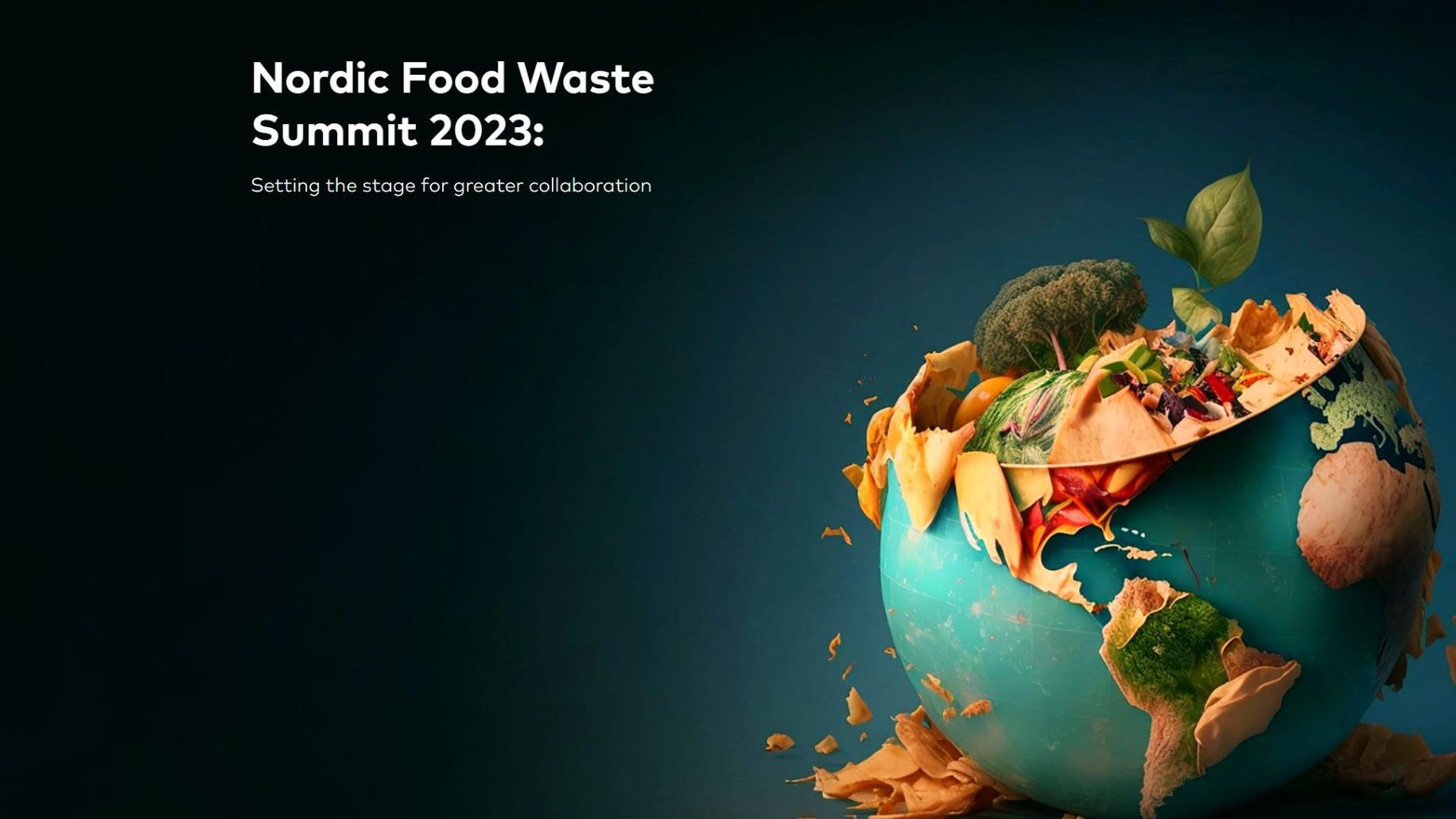
Nordic Food Waste Summit 2023 – setting the stage for greater collaboration
For two days, ministers, entrepreneurs, activists, and royalty stood side by side at the Nordic Food Waste Summit 2023 in the common battle against wasted resources − through political panel discussions, visionary keynotes, coffee-fueled networking, and concrete business cases.
This brief provides a summary of some of the discussions and conclusions that arose from the summit and the action needed ahead. Access the publication here.
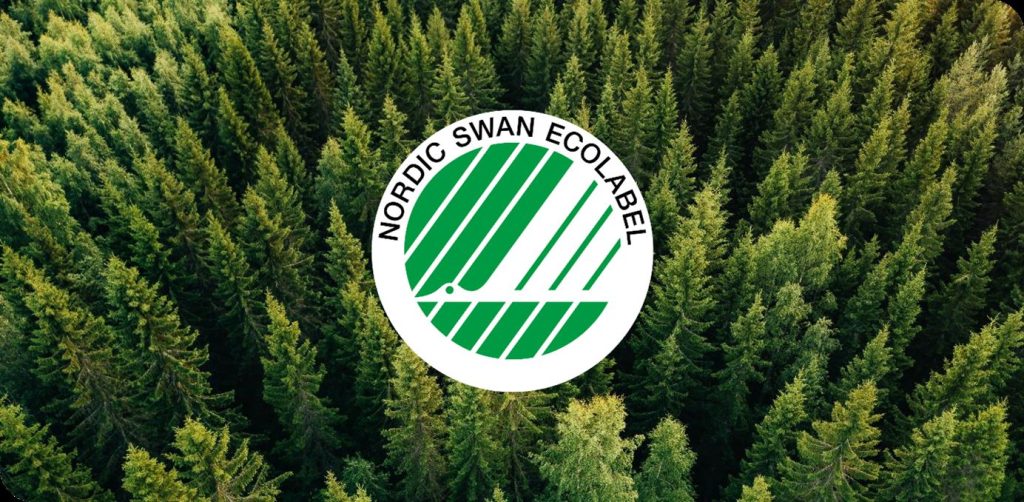
Hard to get. Easy to choose.
That is the tagline for the first cross-Nordic campaign of the Nordic Swan Ecolabel. Raising awareness of the Nordic Swan Ecolabel as a tool for Nordic consumers and businesses to make sustainable choices is an important part of the Nordic Swan Ecolabel project within the Sustainable Living programme. The ecolabel is continuously raising the bar for companies applying to get the label – to ensure that the Nordic Swan Ecolabel is the strictest ecolabel in the Nordics.
Read more about the project here.
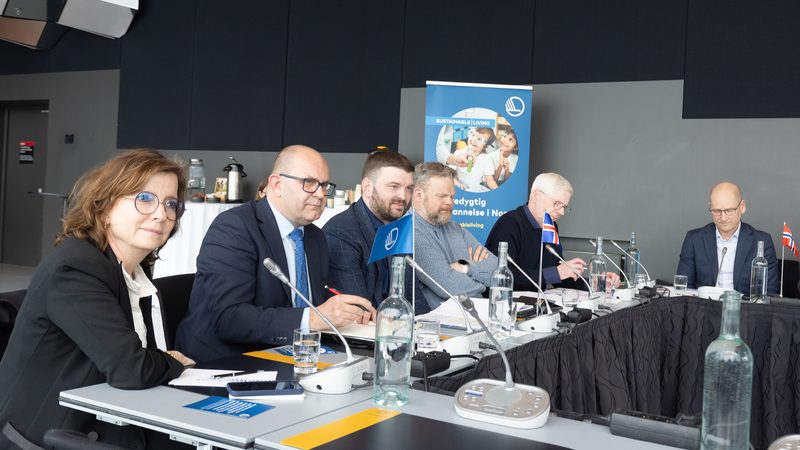
Sustainable education on the agenda at ministerial meeting in Iceland
Teaching sustainability is crucial to prepare our kids for the challenges of the future. From preschool to adult learning, the Nordic school system is working to raise awareness, empower students, and counter climate angst. Through Nordic collaboration on methods and tools, all countries can move forward faster. How to make this happen was high on the agenda of the first-ever joint meeting of Nordic Ministers of Education and the Chairs of the National Teachers’ Associations in the countries. The meeting was hosted by the Icelandic Presidency of the Nordic Council of Ministers and the project Education for Sustainable Living.
Read more about the project here.
Read an article about the meeting at Norden.org here.